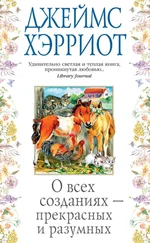Джеймс Хэрриот - All Creatures Great and Small
Здесь есть возможность читать онлайн «Джеймс Хэрриот - All Creatures Great and Small» весь текст электронной книги совершенно бесплатно (целиком полную версию без сокращений). В некоторых случаях можно слушать аудио, скачать через торрент в формате fb2 и присутствует краткое содержание. Год выпуска: 2011, ISBN: 2011, Издательство: Open Road Media, Жанр: Домашние животные, на английском языке. Описание произведения, (предисловие) а так же отзывы посетителей доступны на портале библиотеки ЛибКат.
- Название:All Creatures Great and Small
- Автор:
- Издательство:Open Road Media
- Жанр:
- Год:2011
- ISBN:9781453234488
- Рейтинг книги:4.33 / 5. Голосов: 3
-
Избранное:Добавить в избранное
- Отзывы:
-
Ваша оценка:
- 80
- 1
- 2
- 3
- 4
- 5
All Creatures Great and Small: краткое содержание, описание и аннотация
Предлагаем к чтению аннотацию, описание, краткое содержание или предисловие (зависит от того, что написал сам автор книги «All Creatures Great and Small»). Если вы не нашли необходимую информацию о книге — напишите в комментариях, мы постараемся отыскать её.
All Creatures Great and Small — читать онлайн бесплатно полную книгу (весь текст) целиком
Ниже представлен текст книги, разбитый по страницам. Система сохранения места последней прочитанной страницы, позволяет с удобством читать онлайн бесплатно книгу «All Creatures Great and Small», без необходимости каждый раз заново искать на чём Вы остановились. Поставьте закладку, и сможете в любой момент перейти на страницу, на которой закончили чтение.
Интервал:
Закладка:
Nothing had been moved. The bed with its rumpled blankets was still in the corner. I moved around, picking up half empty bottles, a jar of ointment, the cardboard box with old Ben’s tablets—a lot of good they had done him.
When I had got everything I looked slowly round the little room. I wouldn’t be coming here any more and at the door I paused and read for the last time the card which hung over the empty bed.
FORTY-FOUR
I WAS SPENDING TUESDAY evening as I spent all the Tuesday evenings—staring at the back of Helen Alderson’s head at the Darrowby Music Society. It was a slow way of getting to know her better but I had been unable to think of a better idea.
Since the morning on the high moor when I had set the calf’s leg, I had scanned the day book regularly in the hope of getting another visit to the farm. But the Aldersons seemed to have lamentably healthy stock. I had to be content with the thought that there was the visit at the month end to take off the plaster. The really crushing blow came when Helen’s father rang up to say that, since the calf was going sound he had removed the plaster himself. He was pleased to say that the fracture had knitted perfectly and there was no sign of lameness.
I had come to admire the self-reliance and initiative of the Dalesmen but I cursed it now at great length; and I joined the Music Society. I had seen Helen going into the schoolroom where the meetings were held and, with the courage of desperation, had followed her inside.
That was weeks ago and, I reflected miserably, I had made no progress at all. I couldn’t remember how many tenors, sopranos and male voice choirs had come and gone and on one occasion the local brass band had packed themselves into the little room and almost burst my ear drums; but I was no further forward.
Tonight a string quartet was scraping away industriously, but I hardly heard them. My eyes, as usual, were focused on Helen, several rows in front of me, sitting between the two old ladies she always seemed to bring with her. That was part of the trouble; those two old girls were always there, cutting out any chance of private conversation, even at the half-time break for tea. And there was the general atmosphere of the place; the members were nearly all elderly, and over everything hung the powerful schoolroom scent of ink and exercise books and chalk and lead pencils. It was the sort of place where you just couldn’t say without warning “Are you doing anything on Saturday night?”
The scraping stopped and everybody clapped. The vicar got up from the front row and beamed on the company. “And now, ladies and gentlemen, I think we might stop for fifteen minutes as I see our willing helpers have prepared tea. The price, as usual is threepence.” There was laughter and a general pushing back of chairs.
I went to the back of the hall with the others, put my threepence on the plate and collected a cup of tea and a biscuit. This was when I tried to get near Helen in the blind hope that something might happen. It wasn’t always easy, because I was often buttonholed by the school headmaster and others who regarded a vet who liked music as an interesting curiosity, but tonight I managed to edge myself as if by accident into her group.
She looked at me over the top of her cup. “Good evening, Mr. Herriot, are you enjoying it?” Oh God, she always said that. And Mr. Herriot! But what could I do? “Call me Jim,” would sound great. I replied, as always, “Good evening, Miss Alderson. Yes, it’s very nice, isn’t it.” Things were going with a bang again.
I munched my biscuit while the old ladies talked about Mozart. It was going to be the same as all the other Tuesdays. It was about time I gave up the whole thing. I felt beaten.
The vicar approached our group, still beaming. “I’m afraid I have to call on somebody for the washing-up rota. Perhaps our two young friends would take it on tonight.” His friendly gaze twinkled from Helen to me and back again.
The idea of washing up teacups had never held much attraction for me but suddenly it was like sighting the promised land. “Yes, certainly, delighted—that is if it’s all right with Miss Alderson.”
Helen smiled. “Of course it’s all right. We all have to take a turn, don’t we?”
I wheeled the trolley of cups and saucers into the scullery. It was a cramped, narrow place with a sink and a few shelves and there was just about room for the two of us to get inside.
“Would you like to wash or dry?” Helen asked.
“I’ll wash,” I replied and began to run the hot water into the sink. It shouldn’t be too difficult now, I thought, to work the conversation round to where I wanted it. I’d never have a better chance than now, jammed into this little room with Helen.
But it was surprising how the time went by. Five whole minutes and we hadn’t talked about anything but music. With mounting frustration I saw that we had nearly got through the pile of crockery and I had achieved nothing. The feeling changed to near panic when I lifted the last cup from the soapy water.
It had to be now. I held out the cup to Helen and she tried to take it from me; but I kept a grip on the handle while I waited for inspiration. She pulled gently but I clung to it tenaciously. It was developing into a tug of war. Then I heard a hoarse croak which I only just recognised as my own voice. “Can I see you some time?”
For a moment she didn’t answer and I tried to read her face. Was she surprised, annoyed, even shocked? She flushed and replied, “If you like.” I heard the croak again. “Saturday evening?” She nodded, dried the cup and was gone.
I went back to my seat with my heart thudding. The strains of mangled Haydn from the quartet went unheeded. I had done it at last. But did she really want to come out? Had she been hustled into it against her will? My toes curled with embarrassment at the thought, but I consoled myself with the knowledge that for better or for worse it was a step forward. Yes, I had done it at last.
FORTY-FIVE
AT I SAT AT breakfast I looked out at the autumn mist dissolving in the early sunshine. It was going to be another fine day but there was a chill in the old house this morning, a shiveriness as though a cold hand had reached out to remind us that summer had gone and the hard months lay just ahead.
“It says here,” Siegfried said, adjusting his copy of the Darrowby and Houlton Times with care against the coffee-pot, “that farmers have no feeling for their animals.”
I buttered a piece of toast and looked across at him.
“Cruel, you mean?”
“Well, not exactly, but this chap maintains that to a farmer, livestock are purely commercial—there’s no sentiment in his attitude towards them, no affection.”
“Well, it wouldn’t do if they were all like poor Kit Bilton, would it? They’d all go mad.”
Kit was a lorry driver who, like so many of the working men of Darrowby, kept a pig at the bottom of his garden for family consumption. The snag was that when killing time came, Kit wept for three days. I happened to go into his house on one of these occasions and found his wife and daughter hard at it cutting up the meat for pies and brawn while Kit huddled miserably by the kitchen fire, his eyes swimming with tears. He was a huge man who could throw a twelve stone sack of meal on to his wagon with a jerk of his arms, but he seized my hand in his and sobbed at me “I can’t bear it, Mr. Herriot. He was like a Christian was that pig, just like a Christian.”
“No, I agree.” Siegfried leaned over and sawed off a slice of Mrs. Hall’s home-baked bread. “But Kit isn’t a real farmer. This article is about people who own large numbers of animals. The question is, is it possible for such men to become emotionally involved? Can the dairy farmer milking maybe fifty cows become really fond of any of them or are they just milk producing units?”
Читать дальшеИнтервал:
Закладка:
Похожие книги на «All Creatures Great and Small»
Представляем Вашему вниманию похожие книги на «All Creatures Great and Small» списком для выбора. Мы отобрали схожую по названию и смыслу литературу в надежде предоставить читателям больше вариантов отыскать новые, интересные, ещё непрочитанные произведения.
Обсуждение, отзывы о книге «All Creatures Great and Small» и просто собственные мнения читателей. Оставьте ваши комментарии, напишите, что Вы думаете о произведении, его смысле или главных героях. Укажите что конкретно понравилось, а что нет, и почему Вы так считаете.
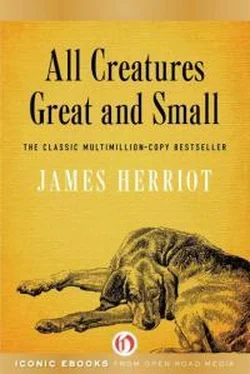
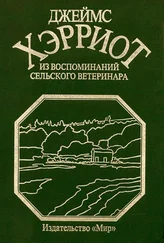
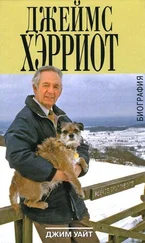
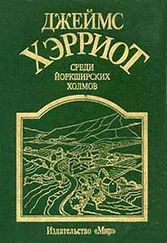
![Джеймс Хэрриот - О всех созданиях – больших и малых [litres]](/books/391169/dzhejms-herriot-o-vseh-sozdaniyah-bolshih-i-malyh-thumb.webp)



